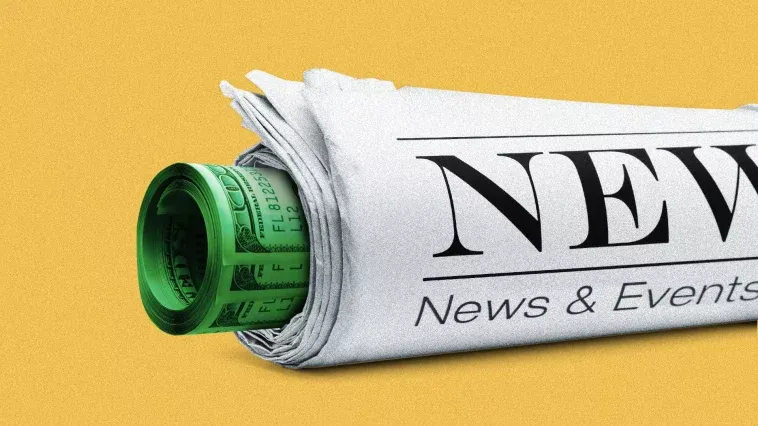(Axios) A bipartisan group of House and Senate lawmakers on Monday unveiled an updated journalism competition bill that, if passed, would force tech companies to pay news companies for their content.
Why it matters: Such a law would create a historic lifeline for the news industry, which has struggled in the digital era to compete with Big Tech firms for ad dollars, particularly at the local level.
Yes, but: Even with bipartisan support, it’s unclear whether the bill will advance, especially in a midterm year.
- While members of Congress from both parties find it prudent to support bills that bolster their hometown papers, previous versions of the bill failed to get the support necessary to advance out of each house’s Judiciary committee.
The big picture: Australia introduced a similar system last year, despite aggressive lobbying against it from companies like Google and Facebook.
- So far, the law has yielded around $140 million in payments to news companies from Google and Facebook, but it has been criticized by Big Tech advocates.
Details: The updated Journalism Competition and Preservation Act (JCPA) provides news companies with an eight-year temporary safe harbor from antitrust laws, letting them collectively bargain with tech companies.
- It expands on earlier versions of similar competition bills introduced in 2019 and 2021 that called for four-year safe harbor agreements.
- Sources say a longer safe harbor was built into this agreement in an effort to prevent news firms from having to lobby for another bill again in four years.
Between the lines: The bill also includes a series of concessions meant to appease Republicans, who traditionally oppose laws that regulate competition between industries.
- Most importantly, the bill won’t apply to publishers employing more than 1,500 full-time employees. That means major national publications like The New York Times, The Wall Street Journal and The Washington Post are not covered as a part of this legislation.
- It also includes provisions to ensure tech companies can’t exclude eligible publishers from negotiations and can’t punish publishers who exercise their rights to negotiate under the law.






